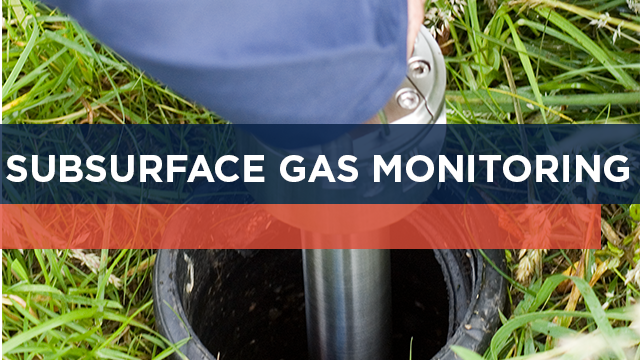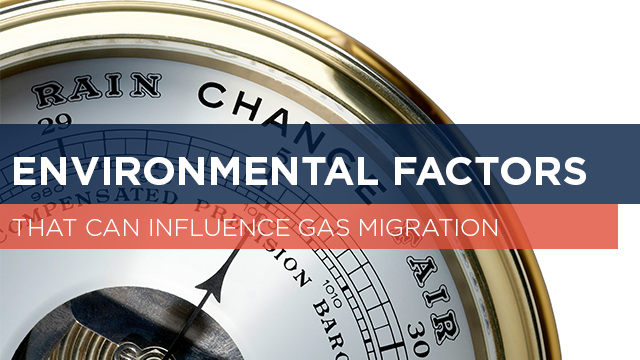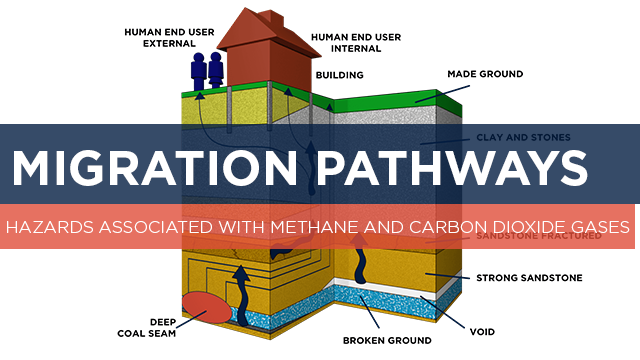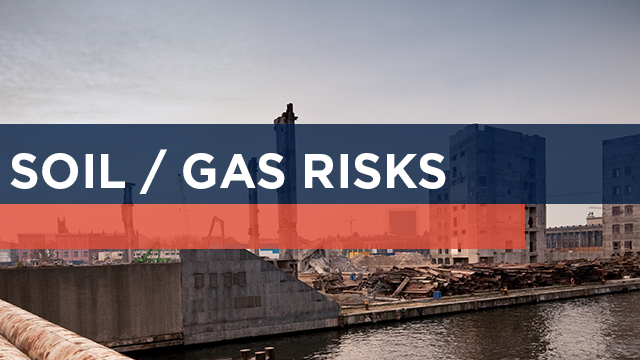Subsurface Gas Monitoring
So, what can be done to mitigate the potential drastic effects?
Whether a landowner, developer or regulator the objective is identical; namely to ensure that any existing or proposed development remains or takes place safely.
Environmental Factors That Can Influence Gas Migration
Rapid changes in atmospheric pressure influence the risk of gas entry into properties. As atmospheric pressure decreases the likelihood of gas entry into the properties on the site increases. This relationship was evident from early monitoring in a vacated Gorgebridge property (see figure 1).
The highest concentration of CO2 represented by the blue line, were recorded when the atmospheric pressure, represented by the dotted red line, was lowest and had fallen rapidly.
Migration Pathways
Migration pathways include pore spaces (e.g. in sands or gravels), fractures, joints, bedding planes and fault lines.
Anthropogenic influences can increase permeability, for example, by activities such as mine grouting, air blast rotary drilling, blasting and mining. All of these can have potentially catastrophic effects on pathways and ground gas movements. In addition, anthropogenic influences include sewers, granular backfill around services, cable ducts, pipes, service ducts, drains and voids such as inspection pits, under floor spaces and basements, all of which may provide preferential ground gas migration pathways.
Soil/Gas Risks
Uncontrolled subsurface gas migration and emission poses a number of risks to the environment and human health & safety from anthropogenic sources (the general term for gases originating in human activity) such as:-
-
landfill waste
-
abandoned coal mining
-
shale gas production
-
contaminated land from past industrial use (some dating as far back as Victorian times)
-
pipeline leaks from current industrial processes such as oil refining & chemical manufacture
-
Coal bed methane






